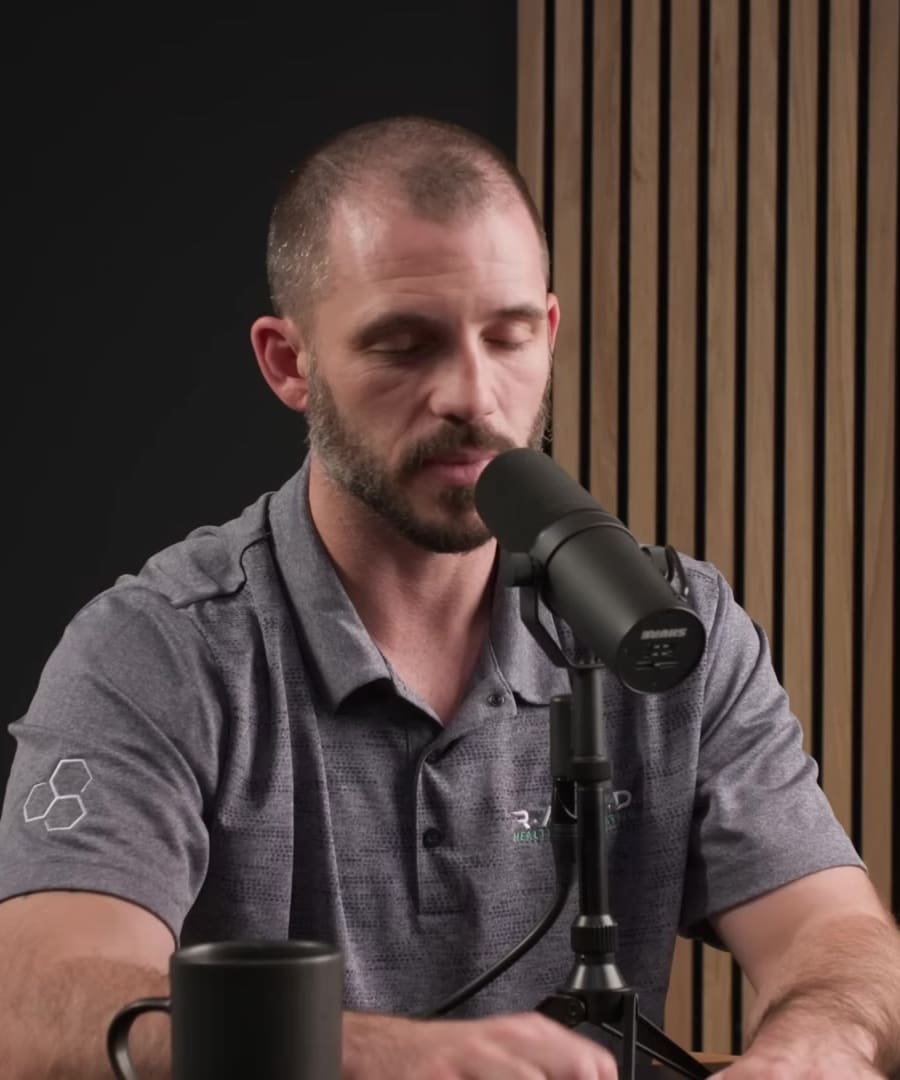I’m having a difficult time recovering after hard workouts what should I do?
Sources:
To enhance your recovery after hard workouts, consider the following strategies based on insights from :
-
Down Regulation Breathing: Engage in three to five minutes of down regulation breathing immediately after your workout to enhance recovery. Focus on exhaling slowly and deliberately to help the body shift from a state of stress to recovery. Deliberate focus on exhales can induce a calming response, crucial for effective recovery 1.
-
Non-Sleep Deep Rest (NSDR): Utilizing NSDR can help replenish mental and physical vigor after workouts. If you're feeling exceptionally tired post-workout, consider adjusting the intensity or duration of your workouts to avoid over-exertion. This can help maintain better energy levels and optimize recovery 2.
-
Nutritional Strategy: Ensure proper fueling before, during, and after workouts to aid recovery. Consuming half a gram of carbohydrate per pound of body weight around your workout sessions can help with hydration and muscle glycogen resynthesis, essential for recovery 3.
-
Compression Gear: Wearing compression clothing post-workout can help alleviate muscle soreness and enhance recovery by reducing swelling and fatigue in muscle tissues 4.
These recovery techniques not only accelerate physical recovery but also assist in achieving better long-term training performance.
RELATED QUESTIONS-
Summarize Dr. Andy Galpin: Maximize Recovery to Achieve Fitness & Performance Goals | Huberman Lab
The discusses various strategies and insights for effective recovery to boost fitness and performance. Here is a summary of its key points:
-
Understanding and Managing Muscle Soreness: The episode covers how muscle soreness occurs and ways to minimize it, including understanding the role of muscle spindles.
-
Recovery Techniques: Various recovery methods are discussed such as compression gear, recovery breathing techniques, and cold water immersion. These help reduce muscle soreness and improve overall recovery.
-
The Role of Nutrition: Emphasis is placed on proper nutritional support for recovery, including the use of supplements and the importance of macronutrients like carbohydrates in managing cortisol levels and improving sleep quality.
-
Preventing Overtraining: The difference between beneficial overreaching and harmful overtraining is clarified, with a focus on recognizing signs of overtraining and adjusting training loads appropriately.
-
Hormesis and Homeostasis: The concepts of hormesis (beneficial stress) and homeostasis (balance within the body) are explored in the context of health optimization and recovery.
-
Incorporation of Technology and Metrics: Tools like InsideTracker for personalized nutrition and metrics for tracking recovery and stress (such as heart rate variability) are recommended to tailor recovery strategies effectively.
-
Cortisol and Stress Management: Insights on how to regulate cortisol and manage stress through various techniques and nutritional strategies are shared.
This comprehensive approach highlights the interplay between nutrition, physiological understanding, and practical recovery tools for enhancing athletic performance and general fitness.
RELATED QUESTIONS-
What are the recovery techniques listed?
The episode lists several recovery techniques:
- Recovery Breathing Techniques: Techniques focused on proper breathing to aid in recovery and manage stress.
- Compression Gear: Utilizing compression clothing to help alleviate muscle soreness and enhance blood flow.
- Cold Water Immersion: Using cold temperatures to reduce inflammation and speed up muscle recovery.
- Thermal Adaptation: Adapting to different temperatures as a method to enhance recovery and resilience.
- Combining Recovery Techniques: Integrating various recovery tactics to maximize effectiveness.
RELATED QUESTIONSExplain how cold water immersion helps in recovery.
Sources:
Cold water immersion helps in recovery by reducing muscle soreness and potentially improving athletic performance after high intensity exercise. Exposure to cold water can have anti-inflammatory effects, which are beneficial for muscle and connective tissue recovery. Furthermore, cold water immersion can increase muscular power and reduce perceived recovery time, making it a practical option for athletes and individuals engaged in rigorous physical activities. Additionally, the exposure to cold can elevate levels of epinephrine and dopamine, providing a mood boost and enhancing overall recovery 1 2.
RELATED QUESTIONS
I’m having a difficult time recovering after hard workouts what should I do?
- RELATED QUESTIONS
Summarize Dr. Andy Galpin: Maximize Recovery to Achieve Fitness & Performance Goals | Huberman Lab
- RELATED QUESTIONS
What are the recovery techniques listed?
- RELATED QUESTIONS
Explain how cold water immersion helps in recovery.
- RELATED QUESTIONS





